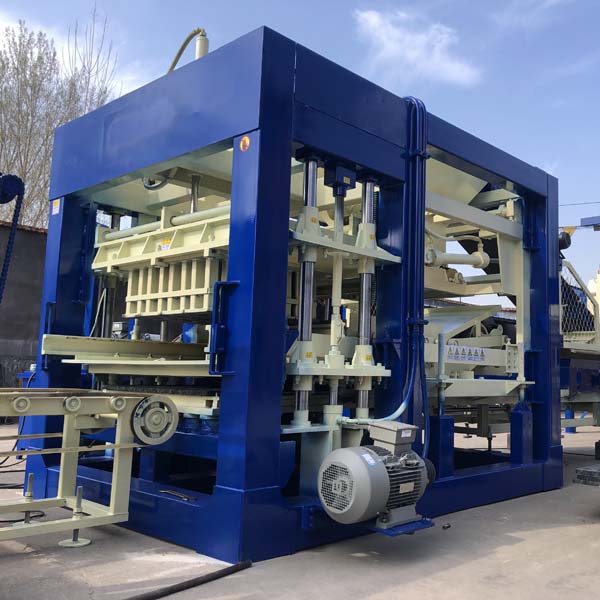
The construction industry plays a significant role in shaping the world we live in, but it also accounts for a substantial environmental impact.
As global awareness of sustainability grows, the construction sector is under increasing pressure to adopt eco-friendly practices.
In this pursuit, block making machines have emerged as a key player in sustainable construction solutions.
These machines offer a range of eco-friendly advantages that contribute to resource conservation, reduced emissions, and minimized waste.
This essay delves into the eco-friendly benefits of block making machines, exploring their role in optimizing resource usage, promoting energy efficiency, enabling sustainable building materials, and fostering circular economy principles.
Optimizing Resource Usage: Reducing Material Waste
Resource optimization is a crucial aspect of sustainable construction, and block making machines excel in this regard by reducing material waste. Traditional brick manufacturing methods often lead to significant wastage due to variations in brick sizes and shapes, resulting in higher material consumption and environmental impact.
Block making machines, however, produce uniform and consistent blocks, minimizing material waste during the production process.
With precise control over the composition and dimensions of the blocks, these machines ensure that only the necessary amount of raw materials is utilized, reducing the demand for natural resources and lowering overall construction costs.
Additionally, some block making machines can use alternative materials like fly ash or recycled aggregates.
By incorporating these eco-friendly materials, construction projects can reduce their environmental footprint and contribute to a more sustainable building sector.
Promoting Energy Efficiency: Lowering Emissions
Energy consumption in construction is a significant contributor to greenhouse gas emissions.
Sustainable construction practices aim to reduce energy use and its associated carbon footprint.
Modern block making machines are designed to promote energy efficiency, making them an eco-friendly alternative to traditional brick production.
Advanced block making machines can be equipped with energy-saving features, such as automated processes, smart controls, and optimized production cycles.
These enhancements reduce electricity consumption during block manufacturing, contributing to lower emissions and a more sustainable construction process.
Furthermore, some block making machines can be powered by renewable energy sources, such as solar or wind power.
By harnessing clean energy to operate these machines, construction companies can further reduce their environmental impact and move towards carbon neutrality.
Enabling Sustainable Building Materials: The Rise of Eco-Blocks
Sustainable building materials are an essential component of eco-friendly construction.
Block making machines facilitate the production of eco-blocks, which are building blocks that incorporate environmentally friendly materials.
One example of eco-blocks is the use of fly ash, a byproduct of coal combustion, in block manufacturing.
By incorporating fly ash into the production process, block making machines divert this industrial waste from landfills and reduce its environmental impact.
Eco-blocks made with fly ash also possess advantageous properties, such as enhanced strength and reduced carbon emissions compared to traditional blocks.
Additionally, recycled aggregates from demolished buildings can be incorporated into the production of eco-blocks.
This practice not only minimizes waste but also reduces the demand for new raw materials, further supporting sustainable construction practices.
Fostering Circular Economy Principles: Reusing and Recycling
The concept of a circular economy, where resources are reused, recycled, and repurposed, is gaining momentum in the construction industry. Block making machines play a significant role in fostering circular economy principles by promoting the use of recycled materials.
Recycled concrete or other construction waste can be crushed and used as aggregates in the production of eco-blocks.
This practice not only reduces waste but also extends the lifecycle of materials, ensuring that valuable resources are not discarded prematurely.
Moreover, when buildings constructed with eco-blocks reach the end of their life cycle, the blocks can be crushed and recycled to produce new blocks or other construction materials.
This closed-loop approach minimizes the need for new resource extraction and waste disposal, creating a more sustainable and circular construction ecosystem.
As the world seeks sustainable solutions to combat environmental challenges, the construction industry has a critical role to play.
Block making machines have emerged as powerful tools in the pursuit of eco-friendly construction practices.
By optimizing resource usage, promoting energy efficiency, enabling sustainable building materials, and fostering circular economy principles, these machines are driving the transformation towards a more sustainable construction sector.
Embracing the eco-friendly advantages of block making machines can help construction companies reduce their environmental impact, lower carbon emissions, and contribute to a greener future.
As the demand for sustainable construction solutions continues to grow, block making machines remain at the forefront of innovative technologies that are reshaping the construction industry for a more sustainable and resilient future.
By harnessing the potential of these machines, we can build a greener and more sustainable world, one block at a time.
